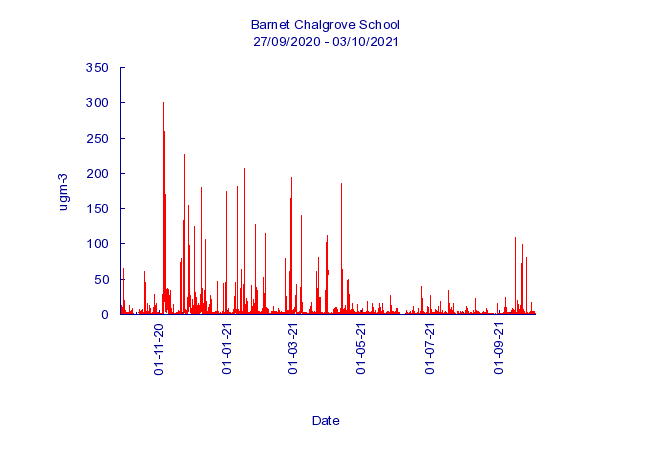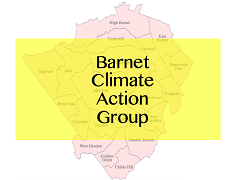by Peter Piper, updated 4 October 2021
[Editor’s note: we have been contacted by Mums For Lungs, and you may like to work with them if you want to campaign about air quality in London.]
From 2016 to 2019 Central London experienced significant improvements in air quality [1], As a result there was a 97 per cent reduction in the number of inner London schools exceeding legal pollution limits – from 455 in 2016, to just 14 in 2019 – as well as a 94 per cent reduction in the number of these areas exceeding legal limits for nitrogen dioxide (NO2). It is predicted that this should increase the average life expectancy of a child born in inner London in 2013 by six months [1].
Despite this, the levels of air pollution in London are still far too high and the improvements in air quality in inner London have not happened in many outer boroughs. An Imperial College study concluded that toxic air had contributed to the deaths of more than 4,000 Londoners in 2019 [1], the boroughs with the largest number of air pollution related deaths in 2019 being Bromley, Barnet, Croydon and Havering [1].
That pollution-related deaths are higher in outer boroughs is partly a reflection of the higher proportion of elderly residents in these boroughs. Older people are generally more vulnerable to the impacts of air pollution. We know that air pollution increases the severity of other health problems, like heart attacks, strokes, diabetes and high blood pressure. Other factors are also involved. Londoners exposed to the worst air pollution are more likely to live in deprived areas and to be from Black, Asian and Minority Ethnic communities. There is also evidence linking air pollution to an increased vulnerability to the most severe impacts of COVID-19 [2].
The expanded ULEZ may exacerbate the problems Barnet faces when dealing with air pollution.
The success of the existing central London Ultra Low Emission Zone (ULEZ) gives confidence that the expansion of the ULEZ on 26 October 2021 [3] and tighter standards for heavy vehicles across the entire city will deliver wider benefits. It is predicted that this will prevent more than one million hospital admissions over the next 30 years, thus saving the NHS around £5 billion and [1,3]. Barnet Council has produced detailed information as to the parts of the borough most affected by air pollution, as part of its plan detailing actions it aims to deliver between 2017 and 2022 in order to improve local air quality in the borough [4].
The boundary of the new, expanded ULEZ will be at (but not including) the A406 North Circular [3]. Unfortunately as much of Barnet lies outside of this new ULEZ, this ULEZ expansion is unlikely to lead to a substantial improvement of air quality in the borough. Instead it may lead to many residential streets near the A406 in Barnet becoming more congested and polluted, as drivers try to avoid the charge. There are also the highly polluted trunk roads north of the A406 such as A1, M1, A41, A5 and A1000 that are not in the new ULEZ and will not therefore see much reduction in vehicle pollution.
BCAG would like to see a prioritisation of Barnet Council’s stated objective of exploring the option of increasing the ULEZ to cover the whole of Barnet. This could potentially have the most significant impact on improving air quality in the borough. GLA evidence for ULEZ expansion predicts a 31% reduction in NOx emissions in Barnet by 2025 if all of Barnet were to be in a ULEZ, but only an 8% decrease with just the area south of the A406 is in the new, expanded ULEZ [3]. Year-on-year diffusion tube measurements NO2 at 15 sites across Barnet show a moderate 7 year decline [4] (the more dramatic decline 2019-2020 probably being due in large part to the Covid lockdown, strong winds or high rainfall over this period). It will be interesting to see whether the diffusion tube measurements of NO2 at the 15 sites currently being monitored in Barnet [4] change significantly with the expansion of the ULEZ.
Furthermore, while expanding the ULEZ will help reduce NO2 levels in inner London (the latter mainly due to diesel exhaust), we will still be faced with the problem of breathing in unacceptable levels of PM2.5 particulates (ninety-nine per cent of London does not meet WHO recommended limits for PM2.5 – the particles most dangerous for health). Expanding low traffic neighbourhoods might not always solve this PM2.5 problem, since they can lead to traffic being diverted from more affluent “leafy” roads to busier, potentially less affluent areas. An Imperial College study of pollution levels in the Marylebone Road during lockdown found that particulate pollution from tyres and brakes did not decline with the reduced volume of traffic, since this traffic was now moving faster.
The prospect for real-time monitoring of the pollution in Barnet.
Barnet Council has produced a detailed pollution map of the borough [4]. However pollution levels at all of these sites will vary considerably over time with changes in traffic levels, weather conditions etc. What is needed is up-to-date information provided by continuous monitoring of pollution throughout the day (“real-time” monitoring). For the past few years Barnet has been continuously monitoring NO2 and PM particulates at two sites (Tally Ho and Chalgrove School)[4], the data being available on the Air Quality England Website : (https://www.airqualityengland.co.uk/local-authority/?la_id=185)
BCAG would like to see Barnet increase the information available to the public through “real-time” monitoring of pollution by: (i) becoming included the London Air Quality Network [5] and (ii) expanding its participation in the Breathe London real time monitoring of pollution [6]. Breathe London is currently placing sensors for continuous monitoring of PM2,5 pm10, temperature, humidity and pressure (not NO2)) at 300 sites across London [6] (see https://www.youtube.com/watch?v=R8_vm1sXkLk ). Although not stated in Barnet’s latest Updated Air Quality status report [4], 4 of these air quality monitors (called Node-S) were recently installed in Barnet (at Wessex Gardens Primary School, Orion Primary School, Martin Primary School and Cat Hill allotments). This welcome inclusion of Barnet in Breathe London will allow its residents, especially those with respiratory problems and those with children, to use the CityAir.app to know when best to negotiate Barnet’s pollution hotspots (the sensors continuously monitor PM2,5 pm10, temperature, humidity and pressure [6]. Furthermore, in addition to these Breathe London sensors, boroughs and other organisations will be able to ‘buy in’ extra sensors to the network at a greatly reduced cost [6]. Since the sensors cost only £40-50 each it is hard to see how failure to introduce a network of them can be defended simply on the basis of its cost. Instead, such a network of sensors could supply online localized air pollution data in real-time for multiple sites in Barnet where residents are potentially exposed to pollution. Residents will then be able to use the CityAir app to minimise pollutant harm to themselves and to their children, Policymakers can also identify problem areas and take steps to protect those who are most at risk, including school children and the residents of lower-income neighbourhoods. The technology is now available. BCAG believes it should be introduced more widely as a matter of priority.
Improving air quality is vital for our children’s future.
Children are one of the worst affected groups when it comes to air pollution [8-10]. According to Unicef UK, children are growing up breathing hazardous levels of toxic air across 86% the UK. It stunts their lung development and increases risk of asthma and pneumonia. Furthermore children breathing toxic air are four times more likely to have reduced lung function in adulthood. All policymakers should take necessary action to protect children especially from road transport emissions. A recent study found that children are most exposed travelling to school, not in the classroom [9]. Note how dramatically the sudden surges of NO2 in the environment of Barnet’s Chalgrove School disappear during the school summer holiday period :-

BCAG would also like to see the right air quality standards – legally binding WHO recommended limits on pollutants – to be achieved by 2030, adopted in the Government’s new, but at present underwhelming, Environment Bill. This will be a once-in-a-generation opportunity to rebuild our cities and economies to be greener, fairer, and more sustainable. However under the Government’s current plans, air pollution in the UK is expected to remain at dangerous levels for at least another 10 years [7]. The estimated cost to health and social care services is upwards of a staggering £2 billion [8], as a result of its impact on heart disease, stroke, lung cancer and childhood asthma. The sources of pollution around London schools have been subjected to detailed analysis [10].
Websources:
[1] https://www.imperial.ac.uk/news/213273/tackling-londons-pollution-will-increase-life/
[2] https://www.sciencedirect.com/science/article/pii/S0269749120365489
[3] https://tfl.gov.uk/modes/driving/ultra-low-emission-zone/ulez-expansion
[4] https://barnet.moderngov.co.uk/ieListDocuments.aspx?CId=695&MId=10912&Ver=4
[5] https://www.londonair.org.uk/london/asp/lahome.asp
[6] https://www.breathelondon.org/
[7] Department for Environment, Food and Rural Affairs: Clean Air Strategy
[8] Public Health England: Estimation of costs to the NHS and social care due to the health impacts of air pollution, https://www.gov.uk/government/publications/air-pollution-a-tool-to-estimate-healthcare-costs
[9] https://www.london.gov.uk/press-releases/mayoral/walking-to-school-on-back-streets-halves-pollution
[10] https://www.edfeurope.org/news/2020/10/11/new-data-air-pollution-sources-london-schools
[11] https://www.unicef.org.uk/press-releases/child-health-experts-warn-air-pollution-is-damaging-childrens-health/



